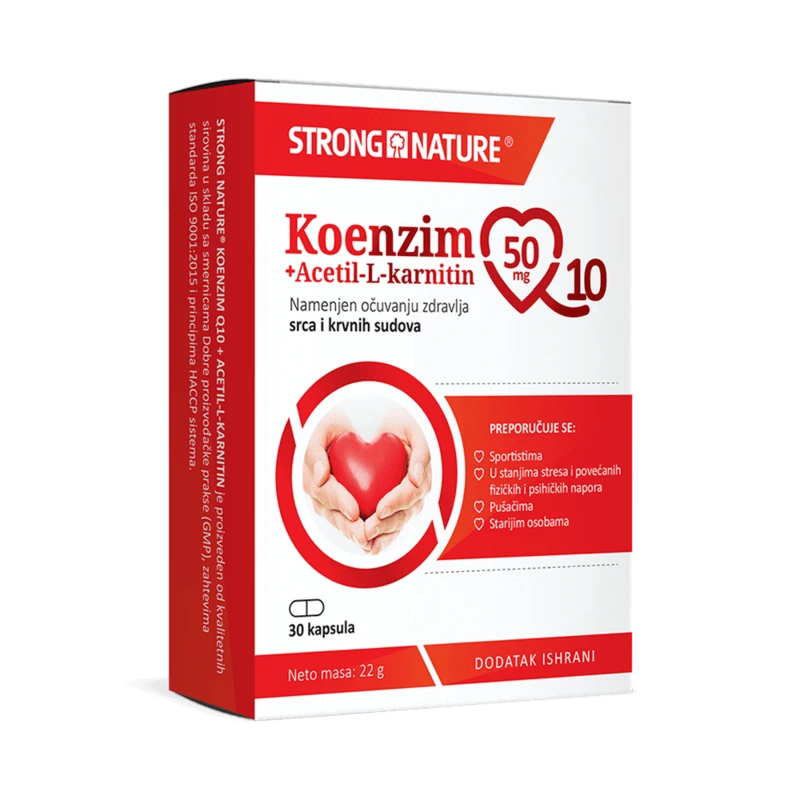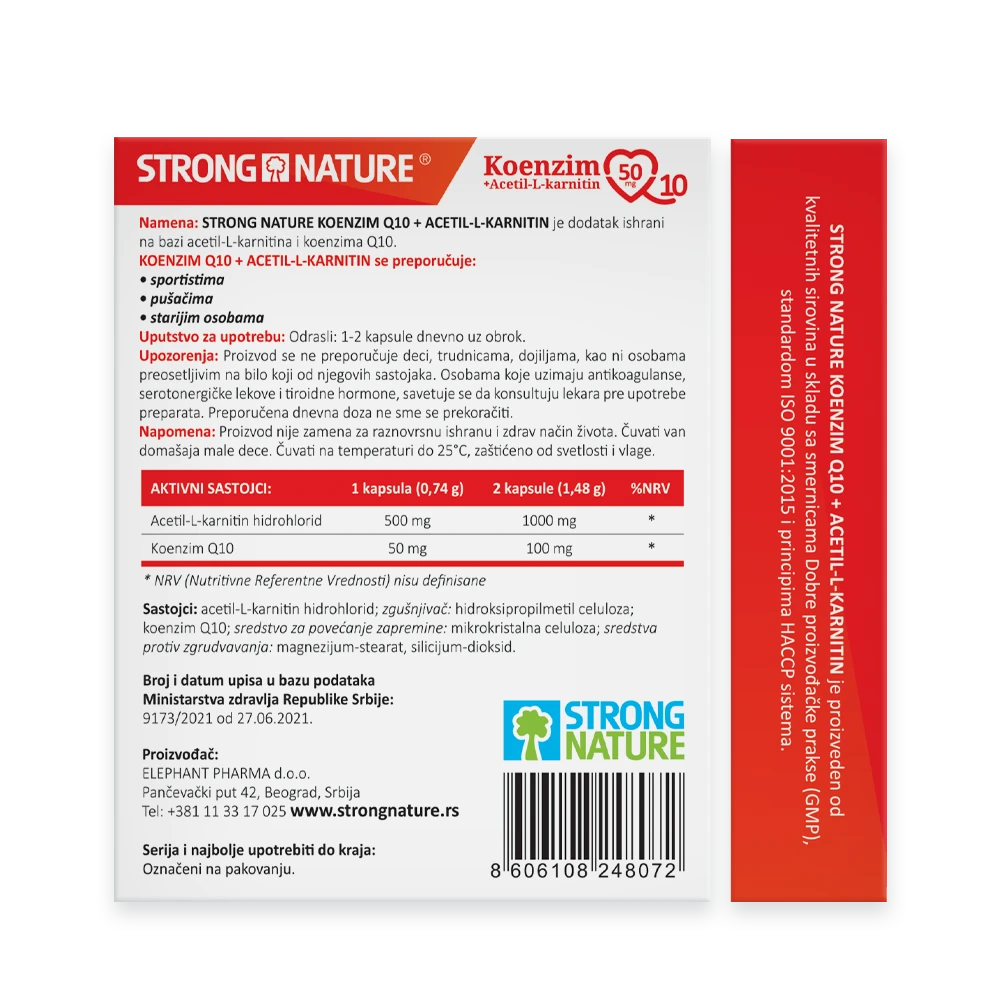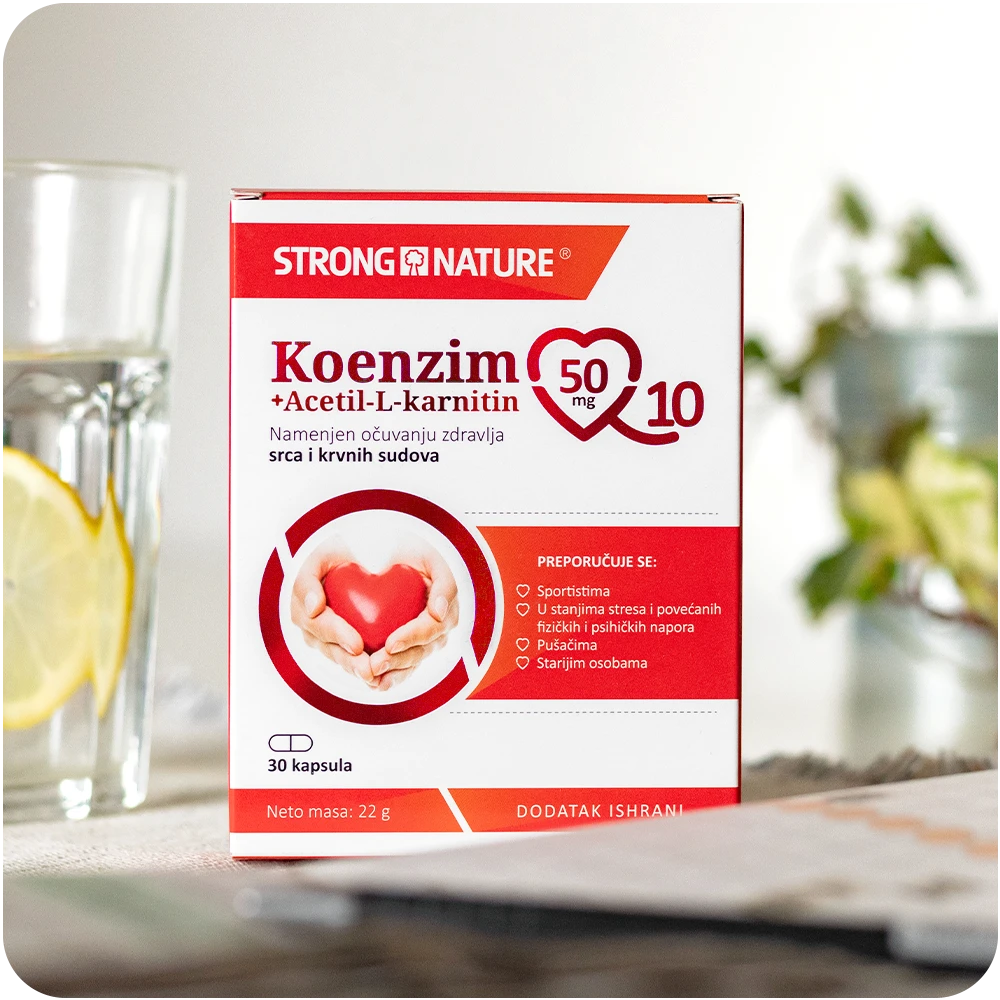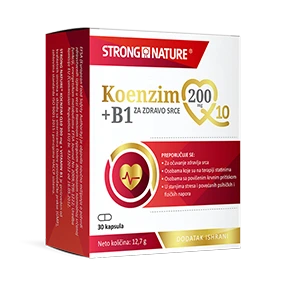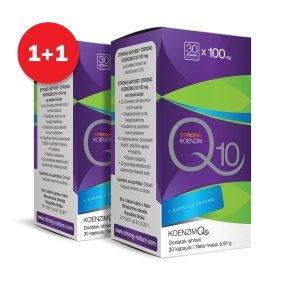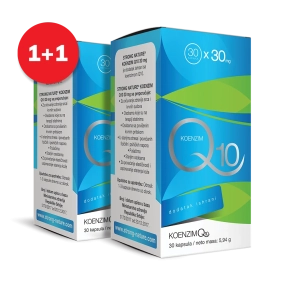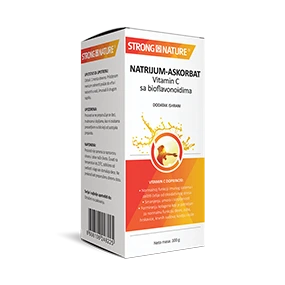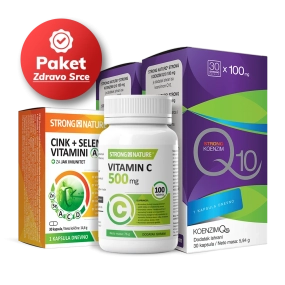Coenzyme Q10 is essential for the normal functioning of the heart and blood vessels. Since the mid-1960s, this substance has been used in Japan in the treatment of heart diseases. At least a dozen experimental studies have confirmed the beneficial effects of Coenzyme Q10 on heart muscle function. A large number of studies also demonstrate its positive impact on overall health and well-being. Coenzyme Q10 is a compound found in all of our cells and is essential for human energy metabolism. It participates in the synthesis of adenosine triphosphate (ATP) – a molecule that stores and transports energy within cells. - It has a remarkably high antioxidant potential - it reacts with free radicals, neutralizes their harmful effects, and protects cells from oxidative damage. – It also helps regenerate other antioxidants. Coenzyme Q10 plays a role in the respiratory chain, where it facilitates electron transport.
Acetyl-L-carnitine is the acetyl ester of the amino acid L-carnitine. It has similar functions in the body as L-carnitine but is absorbed more quickly and efficiently. The primary role of L-carnitine in the body is to transport fatty acids across the mitochondrial membrane into the mitochondria, and also out of them. In essence, its main function is to help utilize fat as an energy source, which is particularly important for heart and skeletal muscles. Research results point to the cardioprotective effects of L-carnitine, its influence on lowering triglyceride levels, and increasing HDL ("good") cholesterol in the blood. Some studies have indicated that L-carnitine has a beneficial effect on enhancing physical performance.. Since acetylcholine is an important neurotransmitter, acetyl-L-carnitine also plays a role in improving cognitive function and memory.
 English
English

